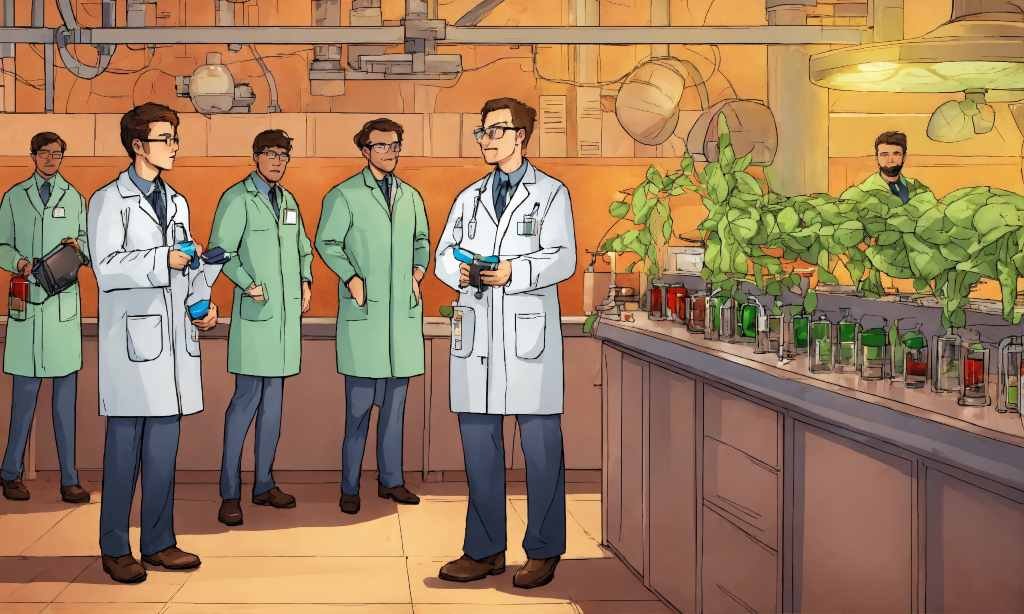Pursuing a degree in chemistry can be an enriching experience. From various job opportunities to research fields, there’s a lot of scope for chemistry majors to make it big in their professional lives.
For example, according to Indeed, a chemist in the US makes around $80,366 per year on average. Based on their experience and skills, they can earn upwards of $100,000 annually for three to four years after graduating college.
The primary purpose of this article is to provide practical tips and strategies for chemistry majors to overcome academic challenges and succeed in their studies. It aims to guide students through the complexities of studying chemistry and equip them with practical approaches to navigate the difficulties they may encounter.
People should read this article if they:
- Are current or prospective chemistry majors seeking guidance on excelling academically?
- They need help understanding complex chemical concepts, problem-solving, or maintaining motivation in their studies.
- Want to develop effective study habits, leverage available resources, and embrace collaborative learning opportunities.
- Seek advice on cultivating a growth mindset and resilience in academic challenges.
- Desire to gain insights from real-life examples and experiences of fellow chemistry students or graduates.
Here are a few expert tips to help you navigate academic challenges as a chemistry major.
Develop Strong Study Habits

Success in chemistry, like any other discipline, heavily relies on consistent and effective study habits. According to Psych Central, you should stick to simple study habits to get good grades. These include:
- Know your class expectations
- Find yourself a practical study location
- Make sure you have the suitable study materials
- Network with peers
By regularly immersing yourself in the material, you’ll reinforce your understanding and retention of complex chemical concepts.
Seek Clarification and Support
Don’t hesitate to ask for assistance when encountering challenging topics or concepts.
Attend office hours with your professors or teaching assistants to seek clarification on confusing material or to ask questions about assignments. Establishing a rapport with your instructors demonstrates your commitment to academic success and allows them to provide personalized guidance tailored to your needs.
Besides, according to CampusWell, attending office hours also helps build rapport with professors. This can be particularly useful for your career growth and potential research opportunities.
Also, leverage resources such as tutoring services and study centers. Use online forumsto connect with peers and experts who can offer insights and support.
Collaborative Learning
Chemistry is a collaborative field where teamwork and collective problem-solving are often integral to success. Engage in collaborative learning opportunities by forming study groups with fellow chemistry majors or participating in group projects and laboratory experiments. Collaborating with peers allows you to exchange ideas, discuss challenging concepts, and tackle problems from different perspectives.
You can even collaborate online on different platforms or forums. Recently, a chemistry paper’s part II equilibria involving sparingly soluble salts question seemed to have gotten many students confused. Including topics like chemical equilibrium, sparingly soluble salts, chemical reactions, and salts in this question caught many students off guard. Thus, students began working together through various platforms and online forums to find the solution to this question.
According to Proprep, the abovementioned question is part of the soluble salt topic. This topic is fundamental in physical chemistry, especially in the study of solubility equilibria. Therefore, it was no surprise that so many students were confused by this question and found it hard to solve. Thanks to the collaborative effort of many, finding a proper answer to this question became possible.
Practice Problem-Solving Skills
Chemistry is inherently problem-solving-oriented, requiring you to apply theoretical knowledge to practical scenarios. Dedicate ample time to solving various problems across different topics and difficulty levels.
Work through textbook exercises, past exam questions, and supplementary problem sets to hone your analytical skills and develop a deeper understanding of underlying principles. As you tackle complex issues, focus on the process rather than solely seeking the correct answer. Embrace mistakes as opportunities for learning and refine your problem-solving strategies accordingly.
Utilize Visualization Techniques
Visualizing abstract concepts can significantly enhance your comprehension and retention of chemistry principles. Leverage visual aids such as molecular models, diagrams, and interactive simulations to conceptualize molecular structures, reaction mechanisms, and other complex phenomena.
Many online resources and software tools offer immersive visualizations that allow you to explore chemical concepts dynamically and interactively. Incorporating visual learning techniques into your study routine can help solidify your understanding of three-dimensional structures and chemical interactions.
Maintain a Growth Mindset
Cultivate a growth mindset characterized by resilience, perseverance, and a belief in your ability to improve through effort and experience—approach academic challenges as opportunities for growth rather than insurmountable obstacles.
Setbacks as learning experiences and use them as motivation to persist in your academic journey. Adopting a positive attitude towards learning fosters a sense of curiosity, enabling you to embrace the inherent complexities of chemistry with enthusiasm and determination.
In conclusion, navigating academic difficulties as a chemistry major requires a combination of diligence, resourcefulness, and resilience. You can overcome challenges and excel in your academic pursuits by sticking to the tips above.
The journey of mastering chemistry is as much about the process of learning and discovery as it is about achieving specific academic goals. Thus, stay focused and curious and embrace each intellectual challenge’s growth opportunities.
Real Case Study Examples

- Sarah, a second-year chemistry major at a large public university, struggled with organic chemistry. Despite dedicating long hours to studying, she often felt overwhelmed by the intricate mechanisms and numerous reaction types. After seeking guidance from her professor during office hours, Sarah joined a study group with her peers, where they collaboratively worked through practice problems and clarified confusing concepts. This collaborative approach helped Sarah better understand organic chemistry and improved her problem-solving skills.
- Michael, a transfer student majoring in chemistry at a community college, initially faced challenges adjusting to the rigorous coursework. He found it difficult to visualize three-dimensional molecular structures and struggled with conceptualizing abstract chemical principles. Michael could grasp these concepts better visually by leveraging online simulations and interactive molecular modeling software recommended by his professor. This visualization technique significantly enhanced his comprehension and overall performance in chemistry courses.
- A chemistry major at a prestigious research university, Samantha felt discouraged after receiving poor grades on her first few exams. However, she sought support from the university’s academic success center, where she met with a chemistry tutor who helped her identify areas for improvement and develop effective study strategies. Additionally, Samantha joined an online forum where she connected with fellow chemistry students, exchanged study tips, and discussed challenging concepts. Through this combination of personalized support and peer collaboration, Samantha regained her confidence and significantly improved her academic performance.
- After struggling with maintaining motivation during his senior year, Alex, a chemistry major at a liberal arts college, realized the importance of cultivating a growth mindset. He began reframing setbacks as learning opportunities and embraced the challenges as chances for personal growth. By focusing on the journey of mastering chemistry rather than just the outcome, Alex developed resilience and perseverance, which ultimately helped him overcome academic difficulties and excel in his studies.
By providing relatable real-life examples, readers can better understand the practical applications of the tips and strategies discussed in the article, making it easier for them to adapt and implement these approaches in their academic journeys as chemistry majors.
Concluding Lines
The path to success as a chemistry major is not without its challenges, but with determination and the right approach, you can overcome any academic difficulty. Remember, the journey of mastering chemistry is not just about reaching the destination but also about the growth and learning experiences along the way. Stay committed to developing strong study habits, seeking support when needed, embracing collaborative learning, refining problem-solving skills, utilizing visualization techniques, and maintaining a growth mindset. With these strategies in hand, you’ll be well-equipped to navigate the complexities of chemistry and emerge as a resilient and accomplished professional in the field.
